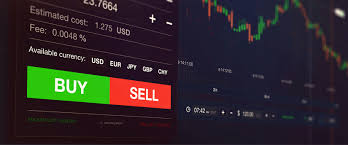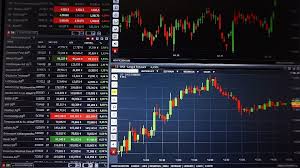
The world of finance is vast and complex, and for many Muslims looking to engage in trading, the question of how to do so in an Islamic manner is a significant concern. This is where Islamic Forex trading comes into play. Islamic Forex trading adheres to the principles of Sharia law, offering a way for Muslims to participate in the forex market without compromising their beliefs. For those interested in diving deeper into this topic and seeking appropriate platforms, one resource is islamic forex trading https://tradingarea-ng.com/, which offers insights into Islamic trading practices.
Islamic Forex trading is essentially the currency market that operates in compliance with Islamic law, or Sharia. Money, in Islamic finance, is not just a medium of exchange but also a commodity itself. In the context of forex, trading must avoid elements prohibited by Islamic finance, namely riba (usury), gharar (excessive uncertainty), and maysir (gambling). Understanding these tenets is crucial for any Muslim wishing to trade currencies legitimately.
The Basics of Forex Trading
Forex trading involves buying and selling currencies in pairs. The main objective is to profit from the changes in currency values. For instance, if you buy the EUR/USD pair, you are buying euros while simultaneously selling US dollars. If the euro’s value rises against the dollar, you can sell the euros back for dollars at a profit. However, the appeal of forex trading is not just in the potential for profit but also in the market’s liquidity, accessibility, and 24-hour operation.
Islamic Finance Principles
Islamic finance is based on a few core principles. The first being that money should only be a medium of exchange and not an object of speculation. This principle leads to a prohibition of riba, which refers to earning interest on loans or investments. In traditional trading, the use of leverage often results in interest payments, which create a barrier for Muslim traders.
Another important principle is the aversion to excessive uncertainty or gharar. Trading contracts cannot contain ambiguity about the asset being traded or the terms of the trade. This means that all conditions must be clear and agreed upon by both parties to ensure fairness and transparency in transactions.

The prohibition of maysir, or gambling, is also crucial in Islamic finance. Trading should not be based on speculation that resembles gambling; rather, it should involve researched decisions grounded in analysis and knowledge of the market.
How Islamic Forex Trading Works
To comply with Islamic finance principles, forex trading accounts offered by brokers must be tailored for Muslim clients. These Islamic accounts, often referred to as “swap-free accounts,” do not incur overnight interest charges for holding positions. This arrangement is essential for Muslim traders, as it aligns with the prohibition of riba.
Many brokers specifically provide Islamic accounts, ensuring that they operate within Sharia guidelines. These accounts typically have features like fixed spreads, no commission on overnight positions, and a lack of interest on margin rates. It’s essential for traders to ensure that their broker is credible and offers truly compliant accounts.
Benefits of Islamic Forex Trading
Islamic Forex trading opens up numerous opportunities for Muslim investors. Firstly, it provides a way to diversify investment portfolios without compromising religious beliefs. Traders can engage in currency speculation ethically and responsibly while still adhering to their faith.
Furthermore, Islamic Forex trading fosters a broader understanding of financial markets as it encourages followers to learn about economics, market movements, and trading strategies. This knowledge not only contributes to personal financial growth but also enhances the overall financial literacy within the Muslim community.

Challenges in Islamic Forex Trading
Despite its advantages, Islamic Forex trading is not without challenges. One of the most significant hurdles is the accessibility of compliant trading platforms. Not all brokers are equipped to offer truly Islamic accounts, which can create confusion among traders. Moreover, identifying a broker that maintains transparency and adheres strictly to Sharia law can be difficult.
Additionally, the volatile nature of the forex market can sometimes push traders towards speculation that could conflict with Islamic principles. Thus, it is vital for traders to remain informed and disciplined, approaching trading as a serious endeavor rather than a gamble.
Conclusion
Islamic Forex trading represents a legitimate avenue for Muslims to engage with the financial markets while adhering to their religious principles. By understanding and respecting the guidelines of Sharia law, Muslim traders can navigate the forex market successfully.
As always, it is essential for traders to conduct thorough research and choose reputable brokers that offer swap-free accounts to ensure compliance with Islamic finance principles. The forex market can be an excellent opportunity for wealth generation, but ethical considerations must always remain at the forefront.
In conclusion, Islamic Forex trading not only allows individuals to pursue financial gains but also encourages a greater understanding of economic principles and ethical finance. As the market continues to evolve, the prospects for Muslim traders will only grow within a framework that respects Islamic traditions and values.
发表回复